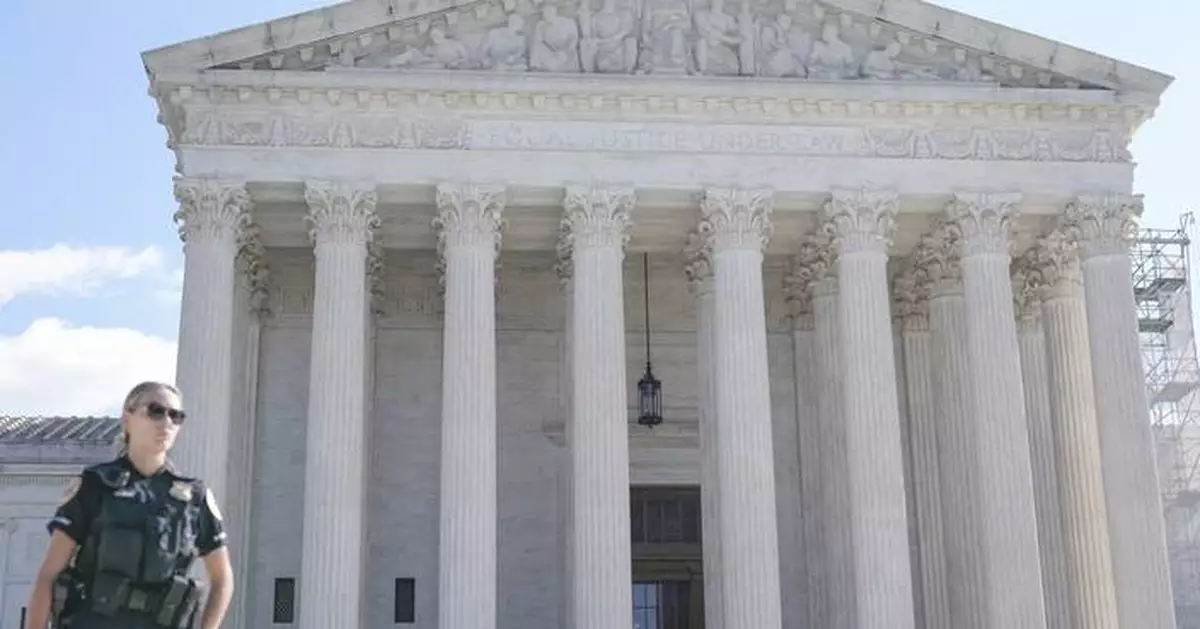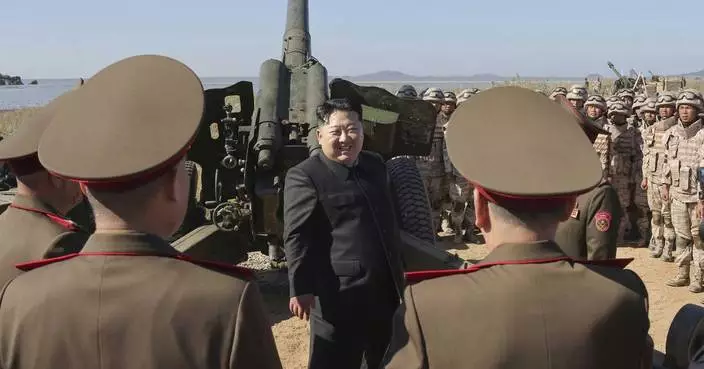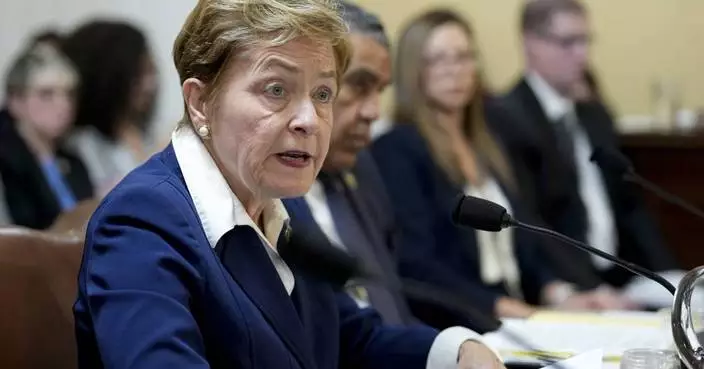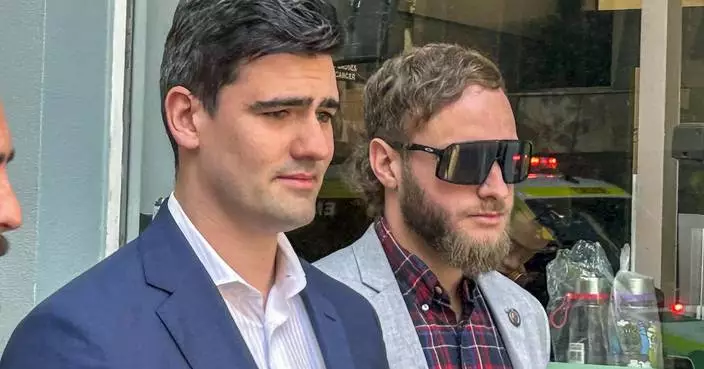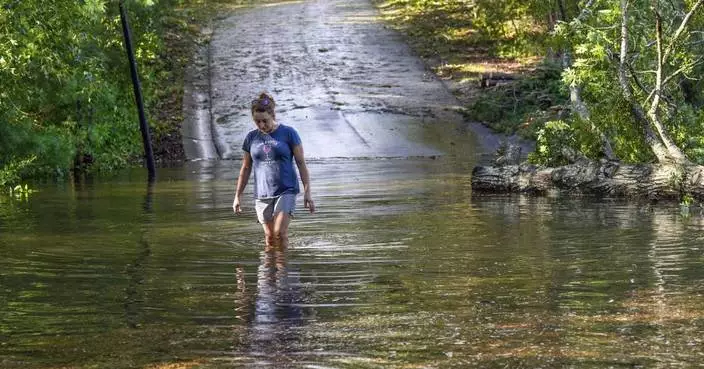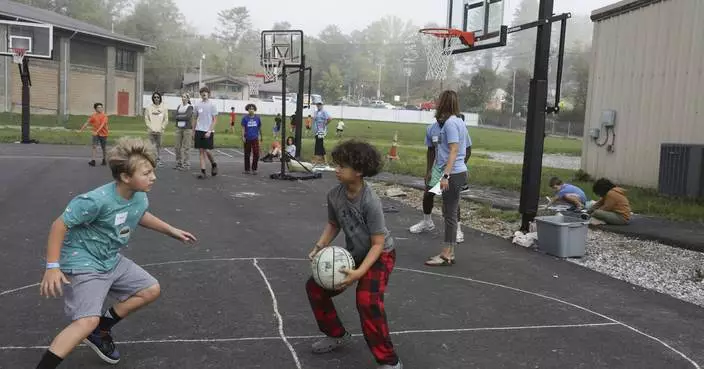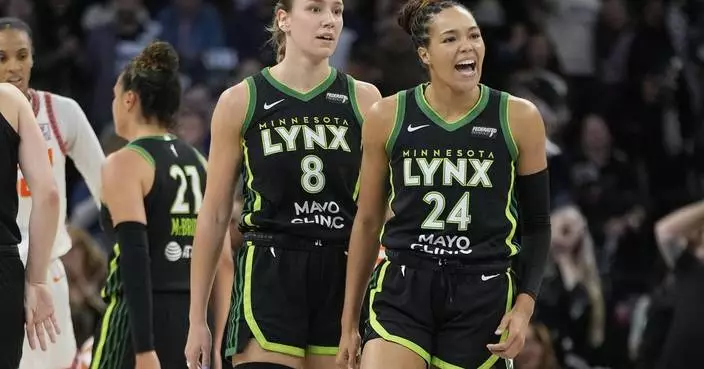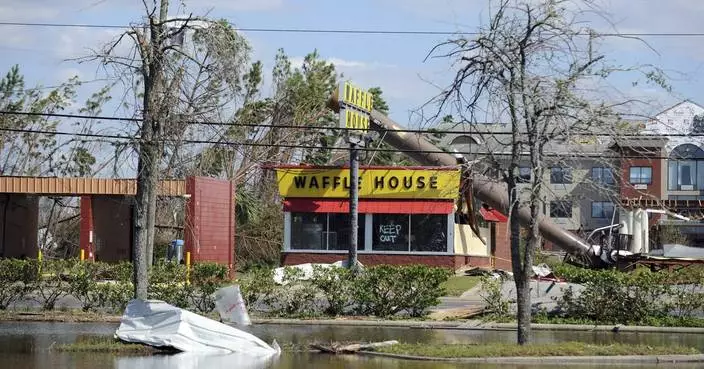WASHINGTON (AP) — The Supreme Court is returning to the case of Richard Glossip, who has spent most of the past quarter century on Oklahoma's death row for a murder he says he did not commit.
In a rare alliance, lawyers for Glossip and the state will argue Wednesday that the justices should overturn Glossip's conviction and death sentence because he did not get a fair trial.
The victim's relatives have told the high court that they want to see Glossip executed.
Glossip has always maintained his innocence in the 1997 killing in Oklahoma City of his former boss, motel owner Barry Van Treese, in what prosecutors have alleged was a murder-for-hire scheme.
Another man, Justin Sneed, admitted robbing Van Treese and beating him to death with a baseball bat but testified he only did so after Glossip promised to pay him $10,000. Sneed received a life sentence in exchange for his testimony and was the key witness against Glossip.
But evidence that emerged only last year persuaded Oklahoma Attorney General Gentner Drummond, a Republican, that Glossip did not get a fair trial.
Among Drummond’s concerns are that prosecutors suppressed evidence about Sneed's psychiatric condition that might have undermined his testimony. Drummond also has cited a box of evidence in the case that was destroyed that might have helped Glossip's defense.
The court will be wrestling with two legal issues. The justices will consider whether Glossip’s rights were violated because the evidence wasn't turned over. They also will weigh whether the Oklahoma court decision upholding the conviction and sentence, reached after the state's position changed, should be allowed to stand.
Prosecutors in at least three other death penalty cases in Alabama and Texas have pushed for death row inmates to be given new trials or at least spared the prospect of being executed. The inmates are: Toforest Johnson in Alabama, and Melissa Lucio and Areli Escobar in Texas. In another similar case, the justices refused a last-minute reprieve for Marcellus Williams, whom Missouri executed last month.
The justices issued their most recent order blocking Glossip's execution last year. They previously stopped his execution in 2015, then ruled against him by a 5-4 vote in upholding Oklahoma's lethal injection process. He avoided execution then only because of a mix-up in the drugs that were to be used.
Glossip was initially convicted in 1998, but won a new trial ordered by a state appeals court. He was convicted again in 2004.
Two former solicitors general, Seth Waxman and Paul Clement, represent Glossip and Oklahoma, respectively, at the Supreme Court. Christopher Michel, an attorney appointed by the court, is defending the Oklahoma court ruling that Glossip should be put to death.
More than a half-dozen states also have weighed in on the case, asking the Supreme Court to uphold Glossip’s conviction, arguing that they have a “substantial interest” in federal-court respect for state-court decisions.
Justice Neil Gorsuch is sitting out the case, presumably because he took part in it at an earlier stage when he was an appeals court judge.
A decision is expected by early summer.
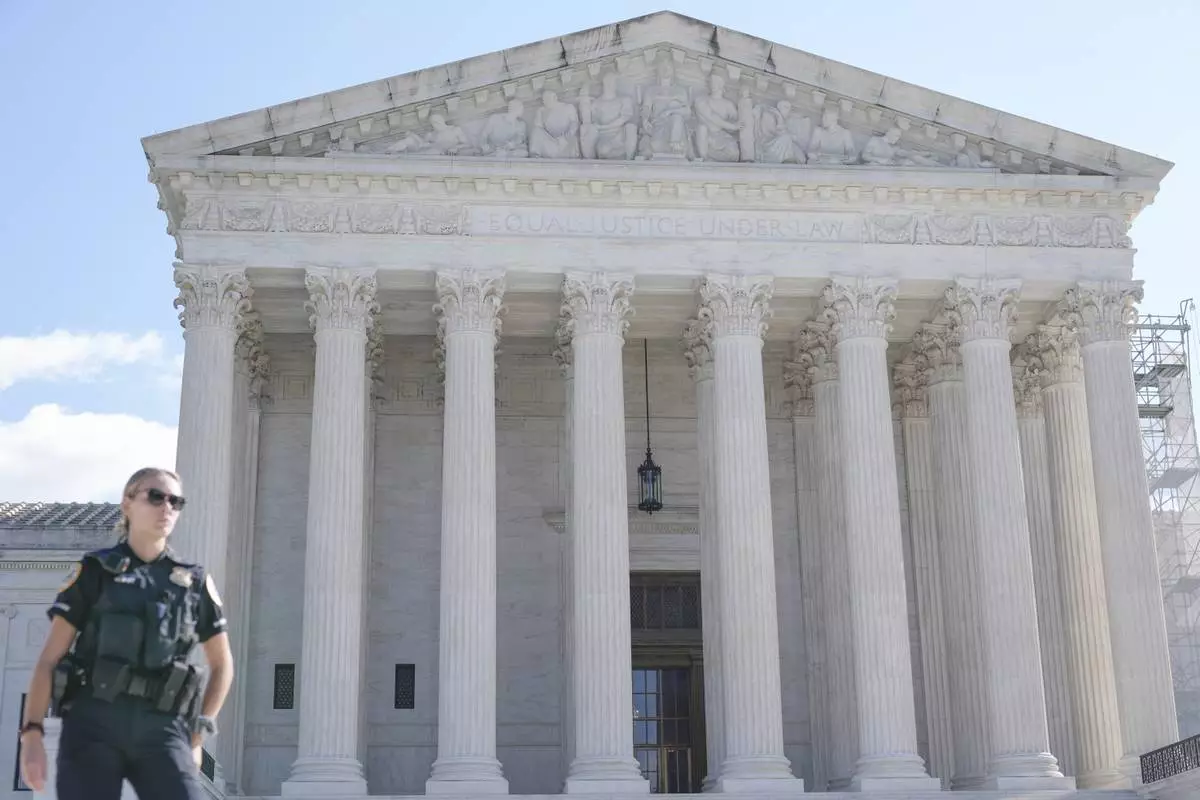
The Supreme Court is seen on Monday, Oct. 7, 2024, in Washington. (AP Photo/Mariam Zuhaib)
The U.S. has a unique system for electing a president, the Electoral College. In modern times, it has put disproportionate voting power in the hands of a few states that are fairly evenly divided politically.
That forces campaigns to dedicate most of their money to the so-called battleground states. There are seven of them this year — Arizona, Georgia, Michigan, Nevada, North Carolina, Pennsylvania and Wisconsin.
The lack of attention to other states leaves voters in much of the country feeling as if they and the issues they care about are being overlooked during the presidential contest.
American voters don't choose their president directly through the popular vote. When they cast their ballot, they are technically voting for a slate of electors who will then vote for president and vice president on a specific day in December.
Nearly all states have laws binding electors to vote for the winner of their state’s popular vote, but that doesn't mean the presidential candidate who gets the most Electoral College votes is the one favored by the majority of voters.
In two of the last six U.S. presidential elections, candidates have lost the nationwide popular vote but won the presidency. This includes former President Donald Trump, who lost the popular vote to Democrat Hillary Clinton in 2016 by nearly 2.9 million but still won enough votes in the Electoral College to become president.
This often sounds crazy to people who live in democracies in the rest of the world. The U.S. is the only country to have a system where voters select a body of electors with the sole function of choosing the president. In most other democracies, the president is directly elected through the popular will of the voters.
Each state's presidential electors are equal to the number of its representatives in the U.S. House and Senate. This benefits smaller states and sets the stage for presidential elections to largely hinge on just a handful of swing states.
A presidential candidate must win a majority of the 538 total electoral votes to win (the District of Columbia gets three). Most states use a winner-take-all system in which all electors award their votes to the popular winner in the state. Maine and Nebraska are the exceptions, awarding theirs on a proportional basis.
The Electoral College incentivizes presidential campaigns to focus visits and spending on a small number of swing states.
This year’s presidential battleground states represent 18% of the country’s population but have dominated the attention of the Democratic and Republican presidential candidates and their running mates.
Through Tuesday, the Democratic and Republican tickets have had just over 200 total campaign stops — three-quarters of which have been to the seven battleground states, according to a database of campaign events that is based on Associated Press reporting. Pennsylvania alone has been visited 41 times, the most of any state. The AP data shows Michigan is second, with 31 visits through Tuesday, followed closely by Wisconsin, with 27. The rest: North Carolina, 18; Nevada, 13; and Arizona and Georgia with 12 visits each.
But it’s not just the state visits: The presidential campaigns are tailoring their appearances to specific counties they believe are crucial to their success. The AP’s database shows their campaign events in those seven states have been concentrated in counties with 22.7 million registered voters — just 10% of all voters registered nationally for this year’s presidential election.
The lack of attention from presidential candidates is felt acutely in places like Waukegan, Illinois, a majority Latino working-class city that has struggled as its factories closed and waterfront deteriorated. Except for the occasional fundraiser in Chicago, Illinois is mostly bypassed by presidential candidates because it votes reliably Democratic.
Its neighbor to the north, Wisconsin, is a common stomping ground for presidential hopefuls.
The last time a presidential candidate set foot in Waukegan was when former President Donald Trump landed at its airport in 2020. He walked off Air Force One, gave a single wave, and immediately climbed into an SUV headed across the border to Kenosha, Wisconsin.
But in Racine, a Wisconsin city of a similar size just 50 miles north of Waukegan, Trump hosted a rally in June near a harbor overlooking Lake Michigan, where he gushed about the development along the lakeshore, spoke about revitalization efforts in Racine and the Milwaukee metropolitan area, and emphasized their voters’ importance in his attempt to return to the White House. Just a month earlier, before he dropped out of the race, President Joe Biden lauded a new Microsoft center in Racine County during a campaign stop in the city.
Waukegan residents say they feel lost in the national conversation during presidential elections and wish they could also be on the candidates’ radar.
“It’s not so much the candidates as it is the anti-democratic Electoral College,” said Matt Muchowkshi, chair of the Waukegan Township Democrats. "It’s frustrating that certain voters’ votes count for more, and they discount and discredit the votes of more urban, more people of color voters.”
Associated Press multimedia journalist Kevin S. Vineys in Washington contributed to this report.
The Associated Press receives support from several private foundations to enhance its explanatory coverage of elections and democracy. See more about AP’s democracy initiative here. The AP is solely responsible for all content.
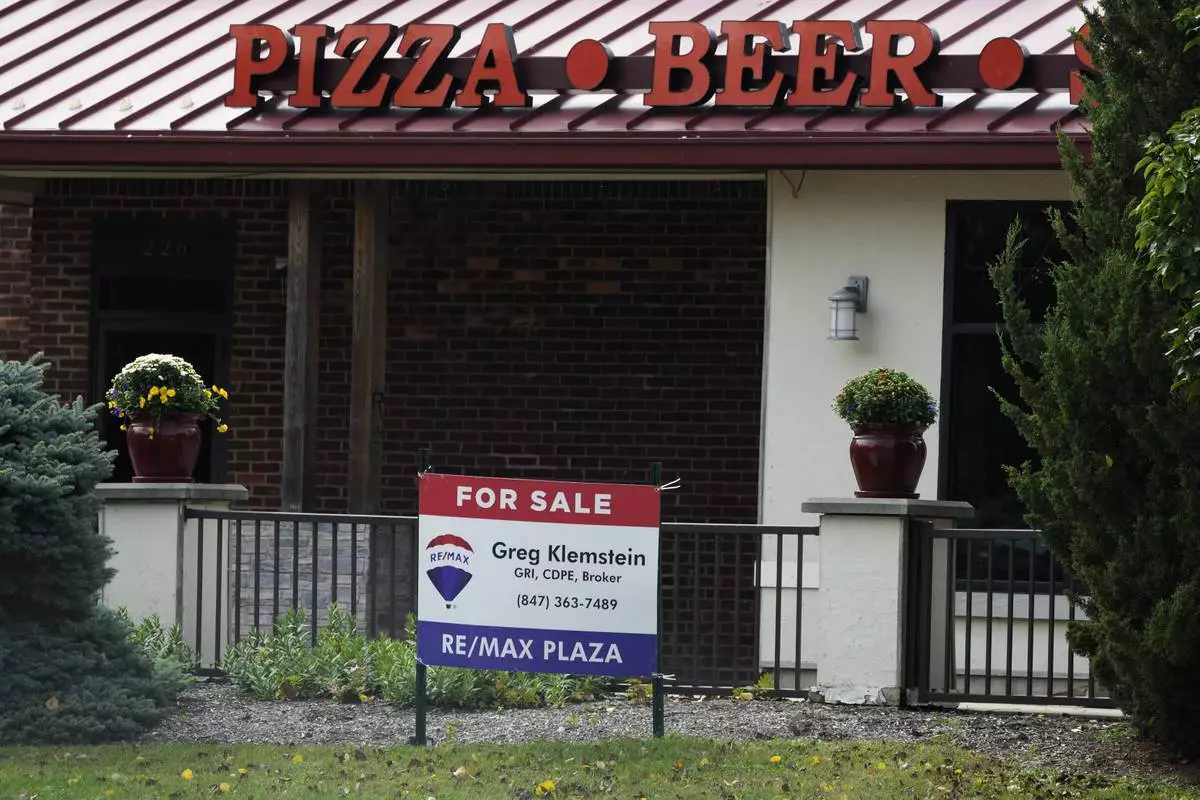
A "For Sale" sign is displayed outside of a restaurant in Waukegan, Ill., Saturday, Sept. 28, 2024. (AP Photo/Nam Y. Huh)
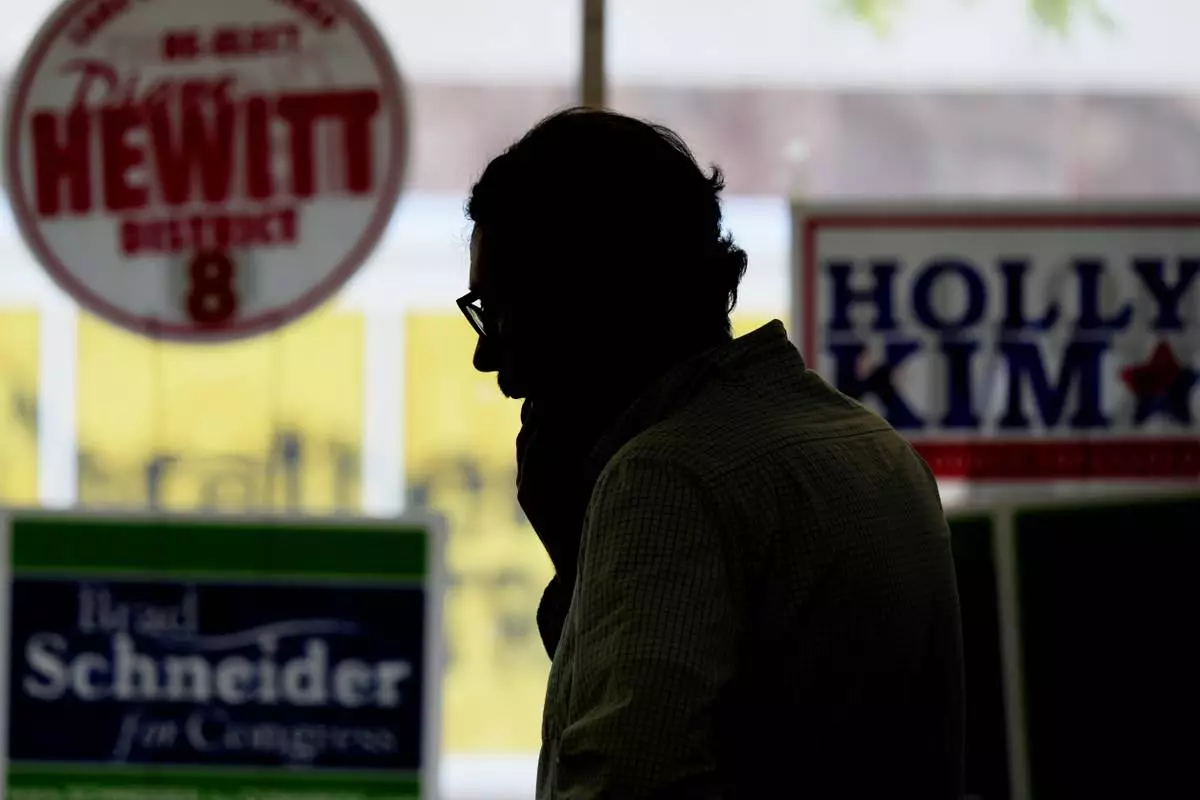
Matt Muchowkshi, chair of the Waukegan Township Democrats, looks around at the Waukegan Township Democrats office in Waukegan, Ill., Monday, Sept. 16, 2024. (AP Photo/Nam Y. Huh)
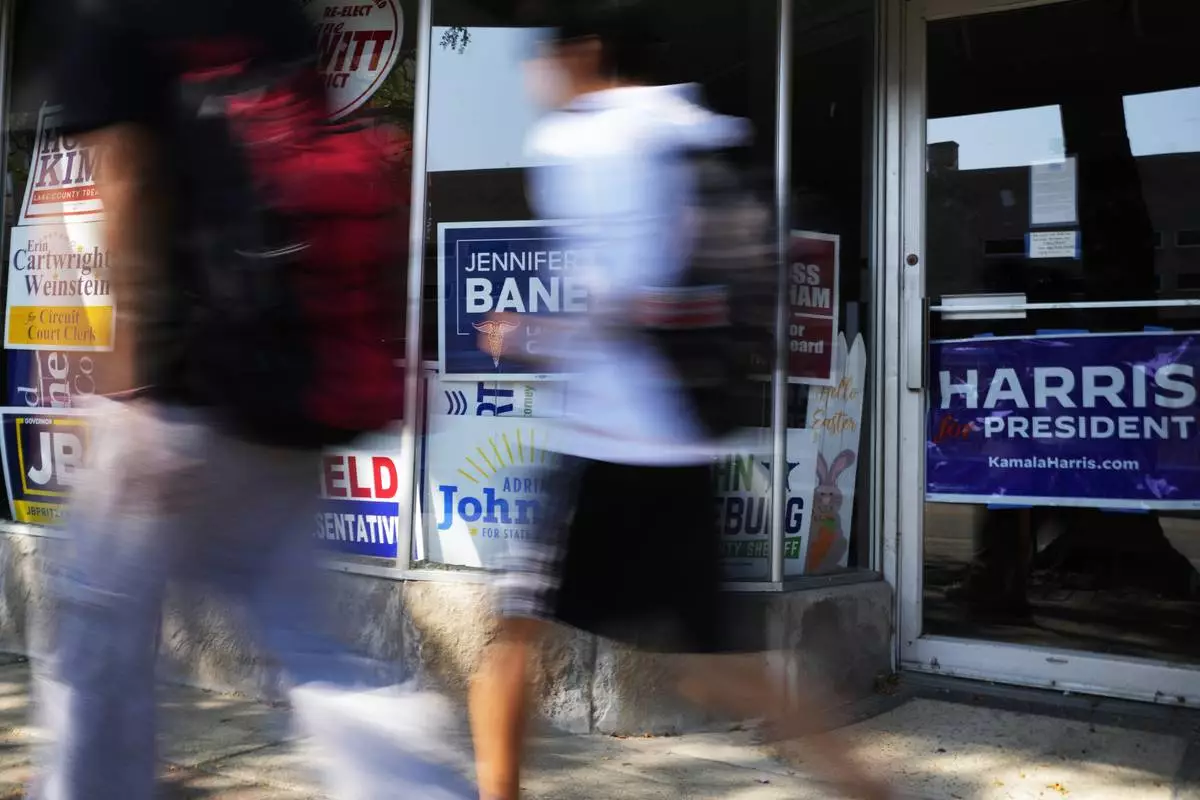
Pedestrians walk past the Waukegan Township Democrats office in Waukegan, Ill., Monday, Sept. 16, 2024. (AP Photo/Nam Y. Huh)
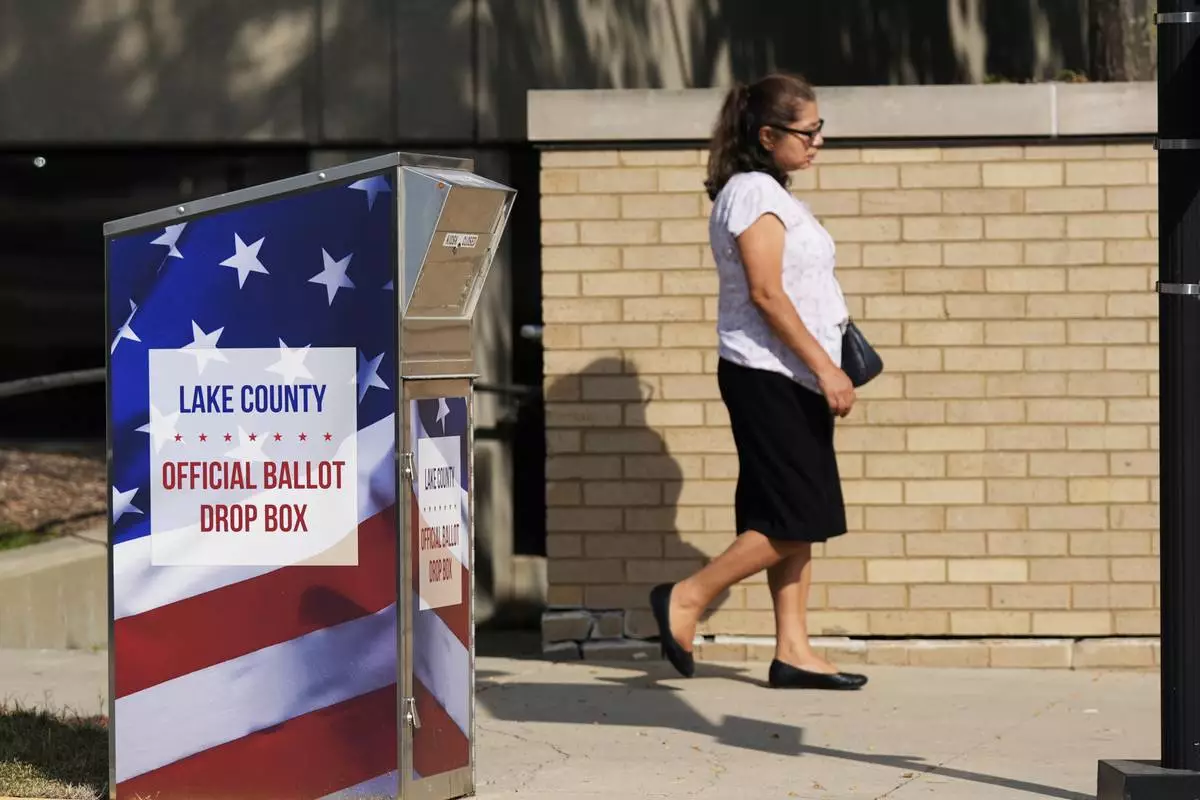
A person walks past a ballot drop-box for Lake County in downtown Waukegan in Waukegan, Ill., Monday, Sept. 16, 2024. (AP Photo/Nam Y. Huh)



